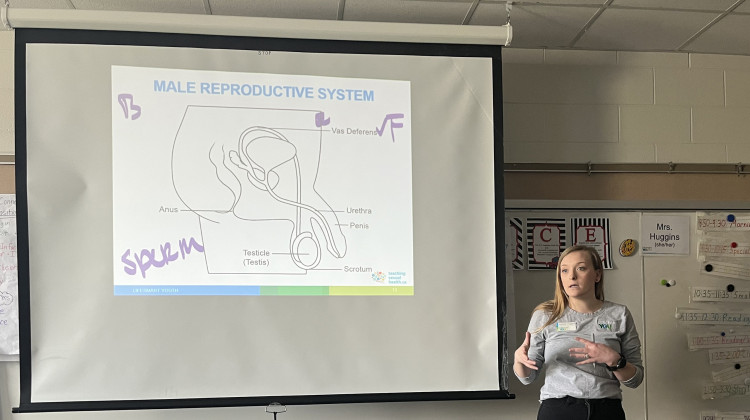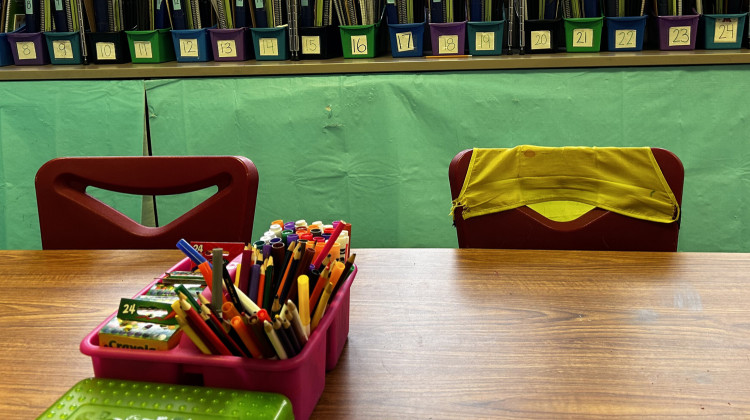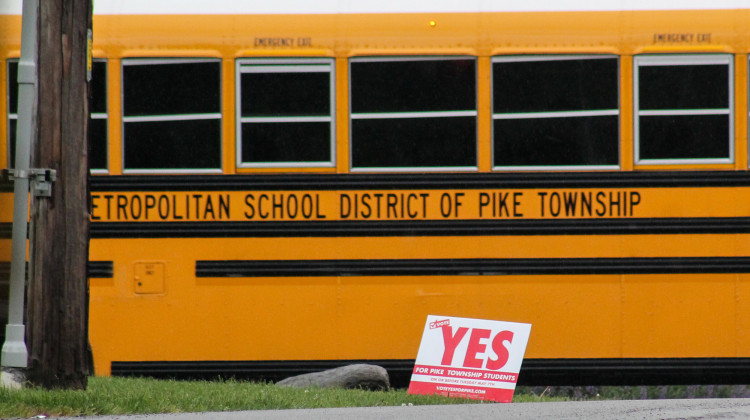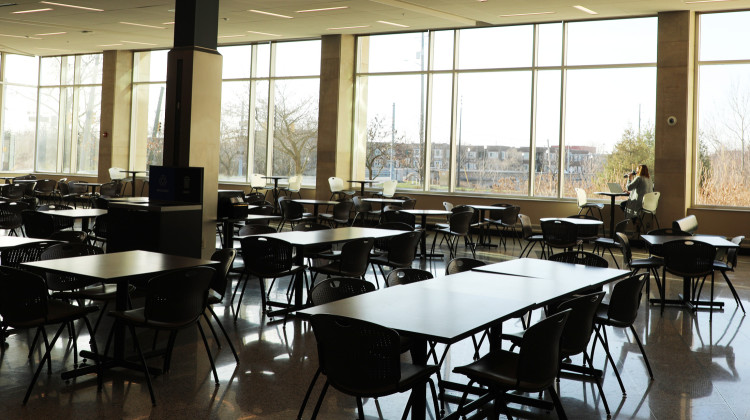
Haileigh Huggins, a health educator with the Indianapolis-based nonprofit, LifeSmart Youth, leads a sex education class for fifth graders at the Phalen Leadership Academy at Louis B. Russell Jr. School 48 on April 7, 2022.
Lee V. Gaines/WFYISex education can look very different in classrooms across Indiana and the country. In Indiana, some schools have recently dropped sex education programs due to parental pressure. In Texas, students this fall will learn about birth control and sexually transmitted infections for the first time in an updated sex education curriculum.
To share what sex education looks like in these two states, WFYI digital editor for health and education Lauren Bavis spoke with WFYI investigative education reporter Lee Gaines and KERA health reporter Elena Rivera in a Twitter Spaces conversation about their recent reporting on sex education in Indiana and Texas. This interview has been condensed and edited for clarity.
Changes coming to Texas
“Texas got a sex ed update that was almost 20 years in the making,” Rivera said. “The internet is a thing now, kids have way more access to smartphones ... and there are a lot of different relationship dynamics that just weren't necessarily in the curriculum.”
While the curriculum is still abstinence-based, a major change is that students in Texas will learn about contraception.
“This, for advocates, is a huge win because as you can imagine, curriculum from the ‘90s – a lot is missing for kids,” Rivera said.
But advocates still say there is still a lot missing. Students will not be taught about gender or LGBTQ-related topics. And while students will learn about boundaries, they will not specifically learn about consent.
“Advocates have said that is something they hear a ton from students asking questions, wanting to know more, and there’s nothing about that in the curriculum,” Rivera said.
Observing sex education classes
As part of her reporting, Gaines spent time in fifth and sixth grade classes in Indianapolis, where a health educator from the nonprofit LifeSmart Youth led a sex education lesson. Sex education isn’t mandated in Indiana schools, but individual districts and schools can choose to provide it.
“In the fifth grade class we had a lot of kids who were understandably a little nervous, a little fidgety,” Gaines said. “But I was overall impressed by how engaged and attentive they were to the lesson.”
All students learned in the same classroom, which was different than Gaines remembers her own sex education classes, which separated boys and girls. And the Indianapolis students had a lot of questions.
“Kids asked questions like, what is acne? Can boys have babies? Can two people of the same sex have a pregnancy? One girl asked how old you had to be to use a tampon,” Gaines said. “It was really, really interesting, and I felt privileged as a radio reporter to get that kind of inside look, that kind of tape, of what sex education actually looks like in a classroom in Indianapolis.”
Why sex education is important
Research shows comprehensive sex education can lead to better health outcomes for students. That’s important in a state like Texas, which has one of the nation’s higher teen birth rates.
“Getting this information is not just a helpful thing for students to know, it’s also really important in preventing some of these outcomes,” Rivera said.
But sex education has become a new topic central to the so-called “parents’ rights” movement, alongside issues like the books students have access to in the classroom.
“That’s what got me interested in this story,” Gaines said. She saw a post in a Facebook parent group about a local sex educator. “She was being portrayed as a pedophile, as a groomer, as someone who was just not safe to be around kids by a far-right parent activist group in this state. And then that was picked up by a lot of conservative media, which amplified those claims.”
There was no evidence that this sex educator was harming students, and after interviewing her and other advocates, Gaines learned some who oppose sex education in classrooms have joined with groups that oppose teaching lessons about topics like race, gender and sexual identity.
“There's this whole group of parents with a lot of concerns, and what advocates say is that they’re being fed misinformation by mostly conservative outlets, conservative pundits, conservative individuals and groups that are trying to scare these parents into thinking that sex education is bad and harmful to their kids and it’s also a way that schools are brainwashing kids,” Gaines said.
Read more on this topic
Texas got a sex ed update, but students and educators say there's still a lot missing by Elena Rivera
Indiana sex educators confront online attacks, nervous schools by Lee V. Gaines
 DONATE
DONATE








 View More Programs
View More Programs

 Support WFYI. We can't do it without you.
Support WFYI. We can't do it without you.